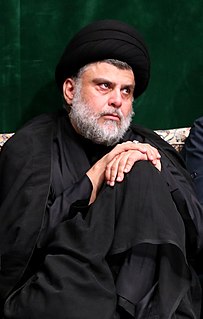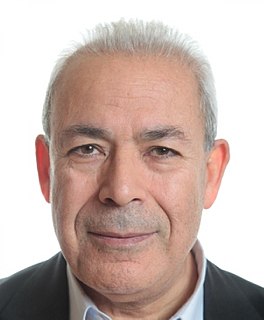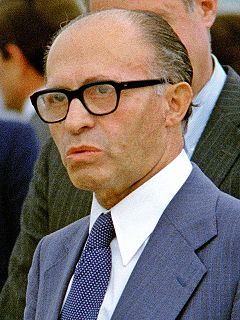A Quote by Muqtada al Sadr
If the American military begins to withdrawal, there will be no need for these armed groups.
Quote Topics
Related Quotes
Let us be clear: there are no Salafist armed groups in Syria. Those carrying arms are mostly members of the dissident army. The armed groups are defected soldiers. But they are not all organized. After they defect, they often disappear into different neighborhoods as they struggle for their safety. They need salaries, they need guarantees for protection, they need livelihoods. That is the way everyone will be brought together.
The list of American grievances is long: Pakistan developed nuclear weapons while promising the United States that it would not; the United States helped arm and train Mujahideen against the Soviets during the 1980s, but Pakistan chose to keep these militants well armed and sufficiently funded even after the Soviet withdrawal in 1989; and, from the American perspective, Pakistan's crackdown on terrorist groups, particularly after 9/11, has been halfhearted at best.
In the States, there has been, compared to the Sixties and Seventies, a huge retrenchment - not just in poetry - into the personal. A withdrawal from thinking in terms of social and collective values, needs and solutions. The consciousness-raising groups of the women's movement, for instance, becoming "support-groups" or therapy groups.
An armed republic submits less easily to the rule of one of its citizens than a republic armed by foreign forces. Rome and Sparta were for many centuries well armed and free. The Swiss are well armed and enjoy great freedom. Among other evils caused by being disarmed, it renders you contemptible. It is not reasonable to suppose that one who is armed will obey willingly one who is unarmed; or that any unarmed man will remain safe among armed servants.
My Army reserve service was in the 1990s. It was, more than anything else, an opportunity for me to express gratitude. My understanding of and admiration for the American armed forces is deeper, better informed as a result. I'm among those who believe that military or other citizen service should be an expected part of every American's life.




































